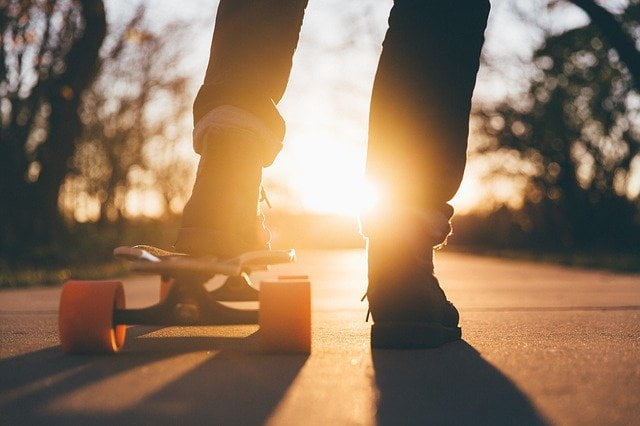The boy at home keeps revising his wishlist. The original was prepared before his board exams. After all the hard work and stress, he wanted to lock his books in the cupboard for eternity and fly out into a happy, studyfree world flapping imaginary wings. The wishlist had many parts — the visit list, the buy list, the food list, the travel list and so on. Not all of it was achievable — you needed to be a Bill Gates or Elon Musk for that. He knew it too. But that didn’t stop him from handing you over a three-page to-do menu post the exams. When did reality ever interfere with a teen’s fantasies?
Sometime towards the end of his exams the virus entered the collective consciousness. By the time he was done with his papers, the first of the many lockdowns was in place. He didn’t feel the burden of it much then. He was just relieved that the exams were over and all restrictions on his freedom had lifted. Then the second lockdown kicked in and then the others. His irrepressible enthusiasm now carried a hint of sadness. Staying confined to home for an indefinite period was not a possibility that figured in the worst of his nightmares. And the delay was making the wishlist useless.
Watching him get more and more restless worries you as a parent. What if he goes into depression? What if he withdraws into a shell? You decide to keep him engaged in one thing or the other. You ask him to revise the list and promise to fulfil all his demands. He makes changes every now and then, adding a few, removing some, and modifying quantities here and there. However, you get a feeling that it no longer carries any expectation. The sheer excitement involved in the exercise has long dissipated. He does it because he doesn’t want you disappointed.
What you fear most, however, whether he would grow up too soon and stop being a child. Maybe you imagine this, but he is no more the chatterbox he used to be. He tries to be mature. His demands from the mother are fewer now. He realises that the parents are under strain coping with the situation around, and wants to be an adult so that he is a lesser burden on them. Maybe he is undergoing a hormonal change, tell friends, it’s normal at this age. Behavioural changes are expected at this stage of life. That fails to convince you fully. Somewhere there’s a gnawing sense of guilt. Perhaps you could have done more. Of course, you don’t know what.
Meanwhile, his classes for the next academic year have begun. He has started getting busy with the school routine and unit tests. Through all this, you know, he will grow up a bit more. The child in him would recede further. You regret that you couldn’t make his post-exam times — among the last of the bridges between childhood and adolescence — memorable. The wishlist is still there, getting reworked continuously. You promise to give it your best.
THE LEAP FROM ADOLESCENCE
If you had a lasting hostile relationship with textbooks and schooling, and seriously believed marks were unfair to your intelligence, board exam was your final getaway from hell. Those days — we are talking of decades ago — students went to college after the board exam, not to the extension of school for a couple of years more — and college meant freedom. No school uniform, no disparaging remark on the capacity of your brain, no restriction on bunking classes, like-minded friends, well, it was a different universe altogether. It was a big leap.
Once there, you treated yourself as a grown-up, You expected the world to treat you as one. School infantilised you, college was liberating. After the board exams the anticipation of the new was exciting. The worriless gap between the exams and the results was the period you mentally prepared for it. Those were less hectic times. Education allowed plenty of breathing space to students. These days their routine is too crammed with concerns for the future. One wonders whether they even have space to think of the leap from adolescence to young adulthood.
THE OTHER WORLD
Prolonged separation from socialising could be causing emotional harm to adolescents, say mental healthcare experts. Their social skills may also be impacted in the absence of peer company. In an earlier article we had discussed how school is not about studies only, it’s a part of the growing up process. Every important experience in the school influences the personality of the student. The institution is the microcosm of the wider world and here the young learn coping skills. This could be seriously disturbed in the case of children who are more emotional in their outlook.
The adolescents have increased their screen time — time spent with mobiles, laptops, desktops, television and gaming devices — in the absence of direct interaction with friends. For most part of their waking hours they live in virtual, not actual, space. Parents, unlike earlier, are happy that they stay engaged that way. The consequence, say psychologists, can be dangerous. In some cases, children create an inner world as substitute for the unsatisfying real world. The alternative world can be a trap. Once they are too much into it, children may find it difficult to escape. Parents have to be mindful about that.
NOT ALL IS LOST
Unlike adults, children are more elastic in making adjustments to changes around. They learn quickly and unlearn quickly too. So there is a fair possibility that they would get out of the negative pandemic experiences soon after the worst is over. That should be heartening news to parents worried about the development of their children. The only catch, however, is the duration of the prevailing situation. It shouldn’t drag too long.


Comments are closed.